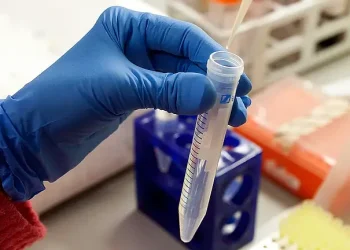The UK government has announced a historic £1 billion investment in the National Biosecurity Centre (NBC) in Weybridge, Surrey, to bolster the nation’s defenses against future pandemics and protect public health, food security, and the economy.
This initiative aims to modernize laboratories for better detection and control of high-risk animal diseases.
Strengthening National Security
The £1 billion investment is a cornerstone of the UK’s new National Security Strategy and Government’s Plan for Change. It aims to enhance national security while creating jobs.
The NBC will play a crucial role in safeguarding both human and animal health by addressing zoonotic diseases, which account for approximately 60% of known human infectious diseases.
This strategic move is expected to benefit the UK’s livestock industry significantly. With exports valued at £16 billion annually, improved disease control measures will reduce trade disruptions caused by animal diseases.
Preparatory work has already begun, with interim labs set to be operational by 2027/28 and full completion targeted for 2033/34.
Impact on Public Health
For the general public, this development promises stronger protection against zoonotic diseases that can jump from animals to humans, thereby reducing pandemic risks.
Enhanced biosecurity measures will ensure steady access to meat, dairy, and other animal products while minimizing economic disruptions in rural communities.
The NBC will also formalize collaboration between the main agencies such as the Animal and Plant Health Agency (APHA), UK Health Security Agency, and Defence Science and Technology Laboratory.
This integrated approach supports comprehensive management of biological threats.
Benefits for Communities
- Enhanced protection against zoonotic diseases
- Stabilized food supply chains
- Reduced risk of trade disruptions
- Creation of new job opportunities
- Strengthened national security infrastructure
A Historical Perspective
This announcement builds on previous commitments like the £208 million allocated in the Autumn 2024 budget for APHA’s Weybridge site transformation.
The need for renewal follows years of underfunding and deteriorating laboratory conditions inherited by the current government.
Voices from Industry Leaders
Environment Secretary Steve Reed emphasized that national security is a top priority for the government. He highlighted this investment as a response to chronic underfunding aimed at protecting farmers, food producers, and public health.
“The first role of any Government is national security. That is why we are making a record investment into the nation’s biosecurity capabilities,”
said Steve Reed.
“This funding is a vital milestone in delivering a world-leading facility that will protect the UK from animal disease threats,”
added Jenny Stewart from APHA.
Additional Reading
To Sum Up
The establishment of the National Biosecurity Centre marks a significant step forward in enhancing UK’s biosecurity infrastructure.
By focusing on both human and animal health threats, it promises not only economic stability but also increased public confidence in food safety—an essential aspect as we navigate future challenges together.
Discover more of More of Todays Top Breaking Government News Stories!.
Sources: UK Government, DEFRA Farming Blog, National Audit Office, Department for Environment, Food & Rural Affairs, Animal and Plant Health Agency and The Rt Hon Steve Reed OBE MP.
Prepared by Ivan Alexander Golden, Founder of THX News™, an independent news organization delivering timely insights from global official sources. Combines AI-analyzed research with human-edited accuracy and context.









